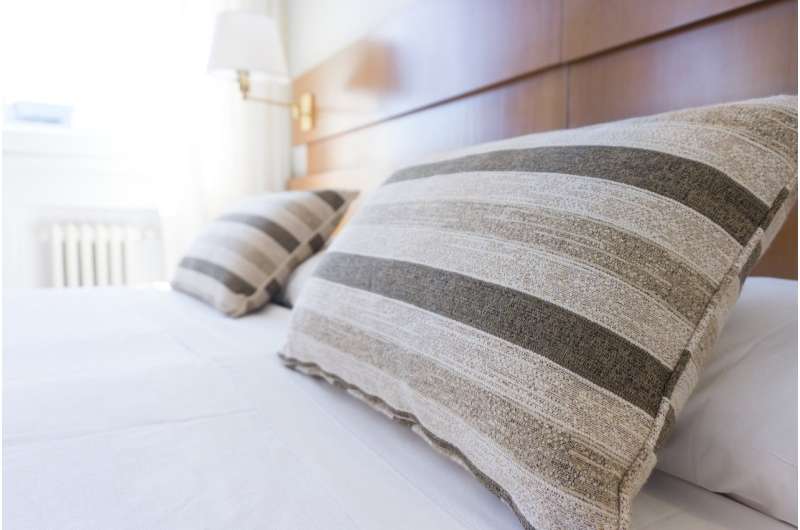This article has been reviewed according to Science X's editorial process and policies. Editors have highlighted the following attributes while ensuring the content's credibility:
fact-checked
trusted source
proofread
Healthy sleep needs a healthy day: Boost exercise to beat your bedtime blues

Early riser or night owl, everyone appreciates a good night's sleep. But despite the best of intentions, quality sleep can elude us, sometimes to the point where it can contribute to serious health issues.
Now, a study from the University of South Australia shows that getting a good night's sleep is tied to how you structure your day, with exercise at the heart of sleep quality.
The study, published in Sleep Health, examined different components of time use and different aspects of sleep among 1,168 children (average age 12 years) and 1,360 adults (their parents, average age 44 years, mainly mothers) the study found that children and adults with higher levels of moderate to vigorous physical activity had less troubled sleep, reduced tiredness, and better sleep quality.
Australian guidelines indicate that most adults need about eight hours of sleep per night, with children and teenagers requiring 8–11 hours per night.
UniSA researcher, Dr. Lisa Matricciani, says understanding factors that affect sleep quality is vital for good health and well-being.
"Despite what we know about sleep, many people still struggle to achieve a good night's sleep," Dr. Matricciani says.
"When people think about sleep quality, they tend to focus on adjustments immediately before bedtime—for example, avoiding screens, not eating too much, and avoiding alcohol—but our research looks beyond this to the range of activities we undertake during the day.
"What we found is that our daytime activities are tied to different aspects of our sleep, from sleep quality, sleep efficiency (how much of the time you spend in bed when you are actually asleep), and the overall amount of sleep we get, to levels of tiredness during the day, and when we choose to go to bed.
"Sometimes, the activities we choose might directly displace sleep—think of kids playing video games late into the night—but other times, it's how we spend our daytime hours.
"In this study we created different simulations to see how extending and restricting aspects of time were related to different aspects of sleep.
"We found that if children and adults increased moderate to vigorous physical activity, they would feel less tired, have less troubled sleep and better-quality sleep.
"Interestingly, simply making more time for sleep predicted more restless sleep.
"Everyone wants a good night's sleep. If it's simply a matter of being more active during the day, then it may be a relatively achievable goal for most of us."
More information: Lisa Matricciani et al, Time use and dimensions of healthy sleep: A cross-sectional study of Australian children and adults, Sleep Health (2024). DOI: 10.1016/j.sleh.2023.10.012




















